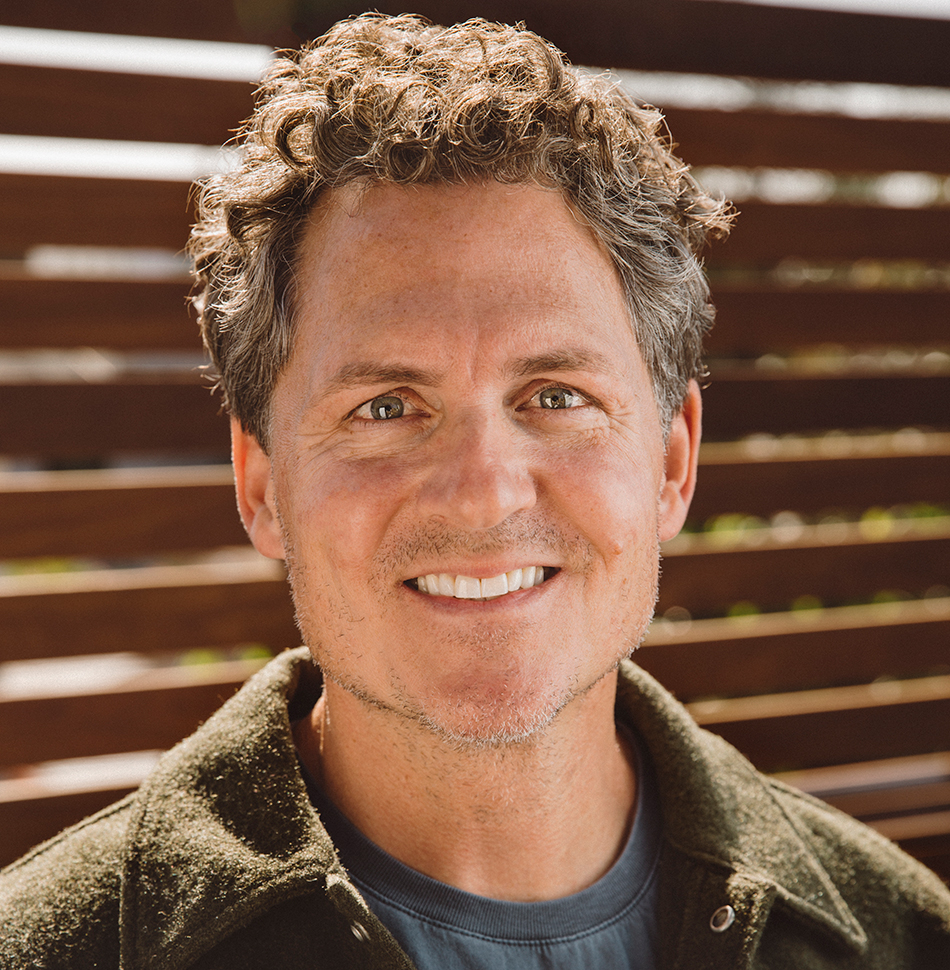The Five Spot: Greg Whiteley EP, One Potato Productions
Veteran producer talks all things ‘Cheer’ and how to make a nonscripted hit
The smarter way to stay on top of the multichannel video marketplace. Sign up below.
You are now subscribed
Your newsletter sign-up was successful
When Netflix released One Potato Productions’s docuseries Cheer on Jan. 8, it became an overnight sensation. Millions discovered the intense, dangerous sport of cheerleading, although fans have been obsessed for years.
Cheer also turned the athletes from Navarro College in Corsicana, Texas — Jerry, La’Darius, Gabi, Morgan, Lexi and hard-as-nails coach Monica Aldama — into huge stars overnight, with exploding fandoms across their social media and appearances on The Late Show with Stephen Colbert and The Ellen DeGeneres Show.

Like all other aspects of American life, coronavirus halted production on season two, and the cancellation of the national collegiate cheerleading championships in Daytona, Florida, in April meant the whole season had to be shelved. Executive producer Greg Whiteley and his One Potato Productions — his unofficial title is Head Potato — signed an overall deal with Netflix in August 2019, though, so expect to see more cheerleading content in 2021.
Whiteley spoke to Multichannel News contributor Paige Albiniak about what it took to produce Cheer and what’s next for One Potato.
How did this project come together?
We were shooting [football docuseries] Last Chance U in Mississippi and in an attempt to broaden our horizons and not just retell the same story, one of my producers, Chelsea Yarnell, suggested we spend some time with the cheerleaders. That led us to go to a cheer practice, which was surprisingly intense. Getting to know them, it occurred to us there might be a show there. A Google search quickly leads you to Navarro.
What show are you bingeing? Netflix’s Tiger King
All-time favorite TV shows? The Wire, Mad Men, Breaking Bad, Fleabag
Books on your nightstand? The Big Goodbye: Chinatown and the Last Years of Hollywood by Sam Wasson
Last great meal? I broke from my vegan diet to make steak for my wife and daughter.
Bucket list destination? Africa, Scotland
We called Monica and she set up a conference call with the school president, athletic director and herself. We were looking at a couple of different schools, but we were very impressed with not just Monica as a personality on the phone. We were really struck by how organized she was. We knew she would be someone we could count on and someone who would be really great to work with. She had a general enthusiasm, openness and confidence in allowing us the kind of access we needed to tell the kind of story we wanted to tell.
The smarter way to stay on top of the multichannel video marketplace. Sign up below.
She would be an amazing Hollywood producer. I told her whenever she gets sick of cheerleading she could come work for us.
There’s a lot of talk in the show about getting to be ‘on mat’ at champs. In a way, you chose several of these kids to be ‘on mat’ in the documentary. How did you select who to showcase?
We have a process. I have just learned by directing and producing — every single year, you pick a handful of people you are going to be focusing on. We always think surely we haven’t done enough due diligence, there may be someone else that is going to crack this handful of people, but that never happens. While I’d like to think I have some special superpower, it’s more likely that everyone is interesting in that culture of cheer.
We didn’t know that people like Morgan and Jerry had such interesting backstories. My hunch is that you cannot become that kind of a cheerleader without being somewhat obsessed and that obsession is usually fueled by something that happened in childhood.
Why do you think Cheer hit in the way that it did?
When I was physically at Daytona it was one of my most anxious moments of my whole life. I was shaking moments before they went on stage. If I can get an audience to feel that exact same way, I know the show will be a hit.
Does launching on Netflix give a show a better chance to succeed?
I think Netflix offers an ideal platform for a show like Cheer or any nonscripted show. Back in the old days of documentaries, unless you got on PBS or even later, on late night on HBO, you weren’t going to get seen outside of film festivals. I think Netflix changed all that. They have such a global reach. Whether it was part of their original business model or not, nonscripted can travel very well overseas and it attracts a lot of eyeballs.
What’s next for One Potato Productions?
If it were not for the pandemic, we would have been at Daytona again in April. That would have been Cheer season two — we had already gotten some amazing footage. I think it’s still up in the air in terms of what they will do with that. All I know is the stories we were tracking were every bit as good as the ones from this season. We’re also working on season five of Last Chance U and a basketball version of that show. We also have some other projects up our sleeves. ▪️
Contributing editor Paige Albiniak has been covering the business of television for more than 25 years. She is a longtime contributor to Next TV, Broadcasting + Cable and Multichannel News. She concurrently serves as editorial director for The Global Entertainment Marketing Academy of Arts & Sciences (G.E.M.A.). She has written for such publications as TVNewsCheck, The New York Post, Variety, CBS Watch and more. Albiniak was B+C’s Los Angeles bureau chief from September 2002 to 2004, and an associate editor covering Congress and lobbying for the magazine in Washington, D.C., from January 1997 - September 2002.

